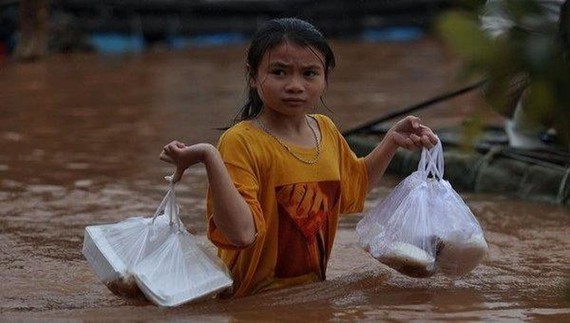 Illustrative photo
Illustrative photo
The report, namely ‘The Climate Crisis Is a Child Rights Crisis: Introducing the Children’s Climate Risk Index’, is the first comprehensive analysis of climate risks from a child’s perspective.
It ranks countries based on children’s exposure to climate and environmental shocks, such as cyclones and heatwaves, as well as their vulnerability to those shocks, based on their access to essential services.
Lesley Miller, Deputy Representative of UNICEF in Vietnam, said the living environment in Vietnam is becoming more and more risky for children.
Immediate actions can prevent the situation from getting worse, she affirmed, adding that ensuring access to suitable social welfare networks and resilience-enhancing services such as clean water, health care and education will help protect children’s future.
Launched in collaboration with Fridays for Future on the third anniversary of the youth-led global climate strike movement, the report finds approximately 1 billion children – nearly half the world's 2.2 billion children – live in one of the 33 countries classified as “extremely high-risk”.
While nearly every child around the world is at risk from at least one of these climate and environmental hazards, the data reveal the worst affected countries face multiple and often overlapping shocks that threaten to erode development progress and deepen child deprivations.
An estimated 850 million children – 1 in 3 worldwide – live in areas where at least four of these climate and environmental shocks overlap. As many as 330 million children – 1 in 7 worldwide – live in areas affected by at least five major shocks.
























